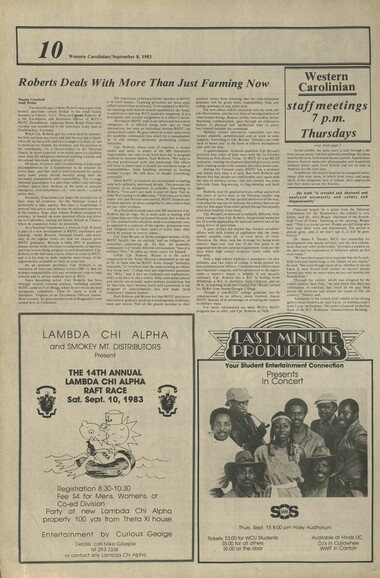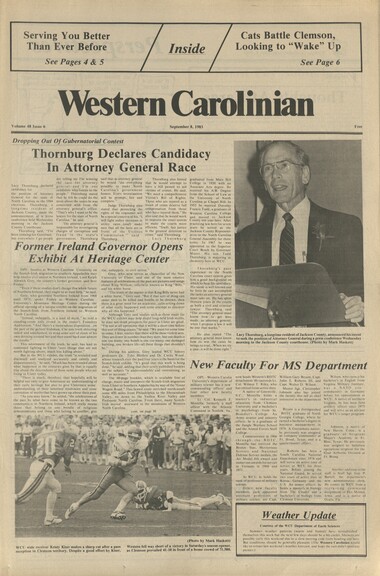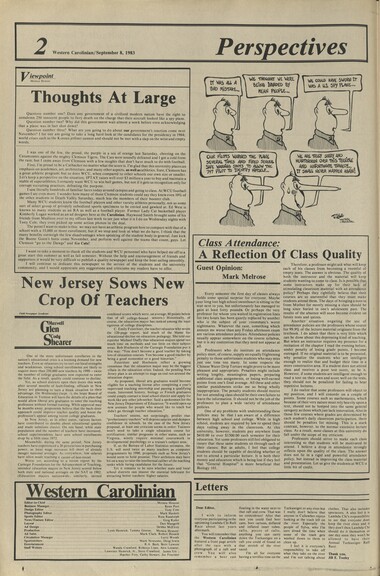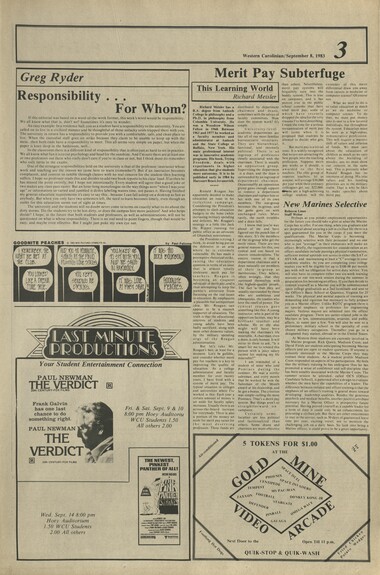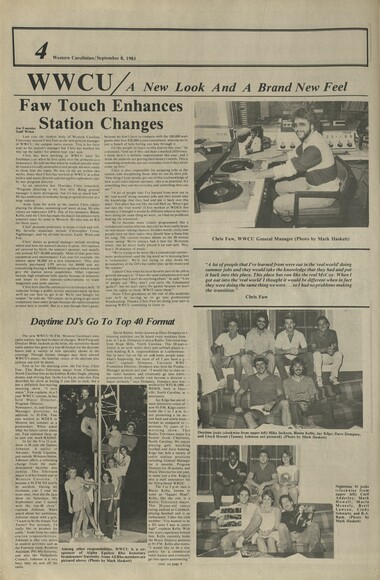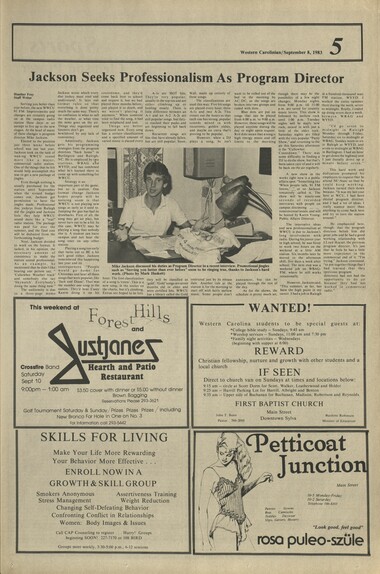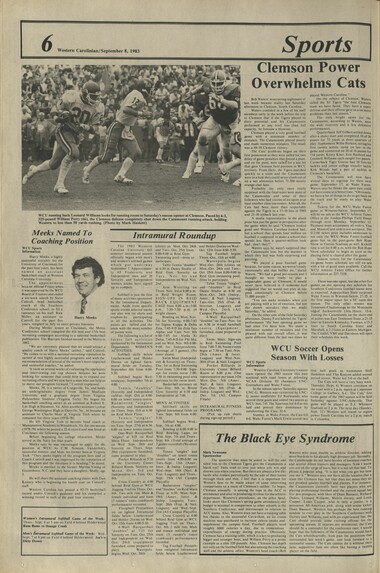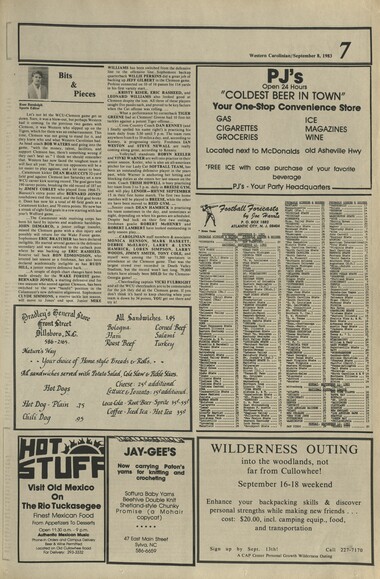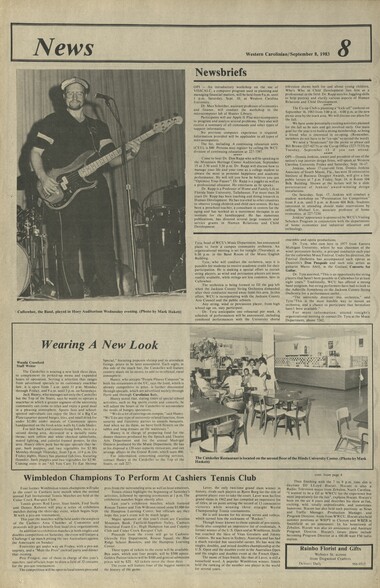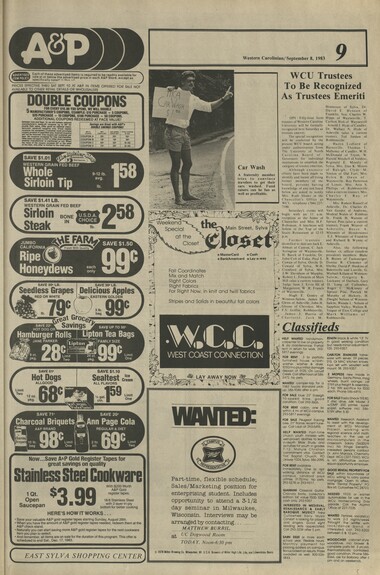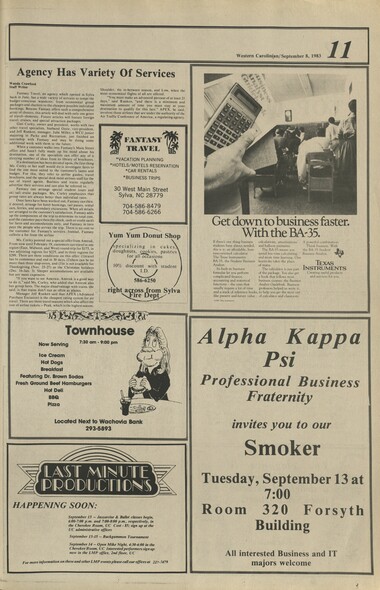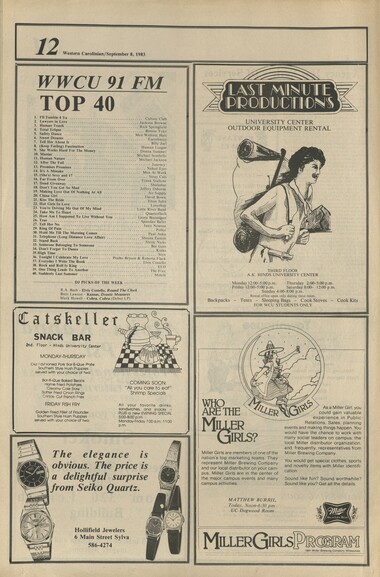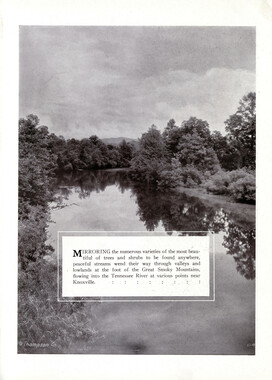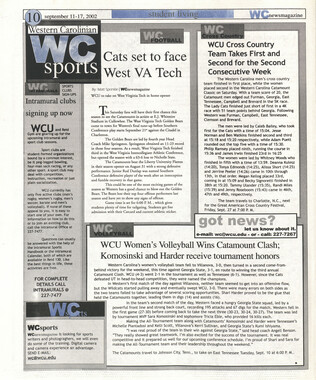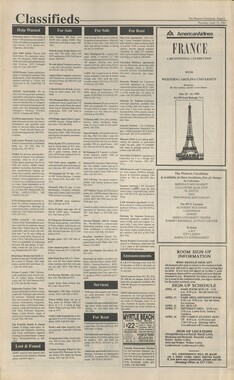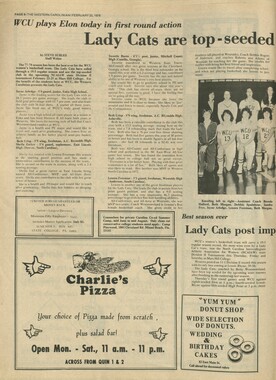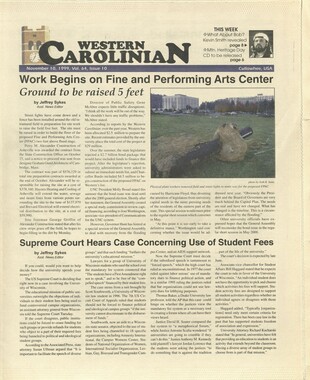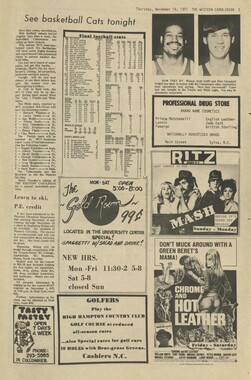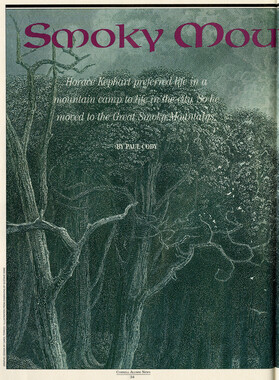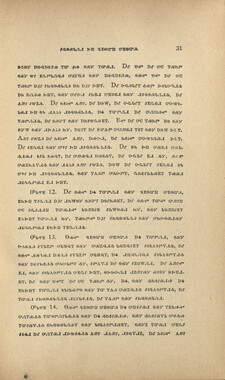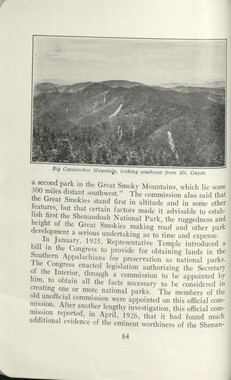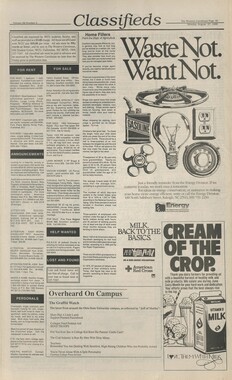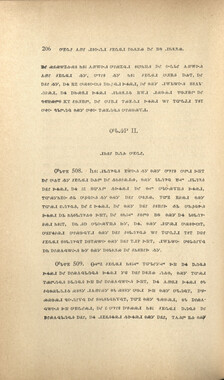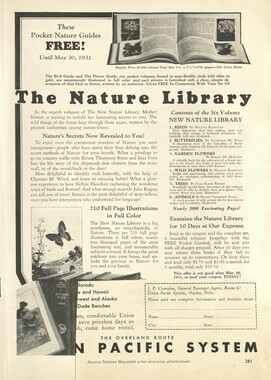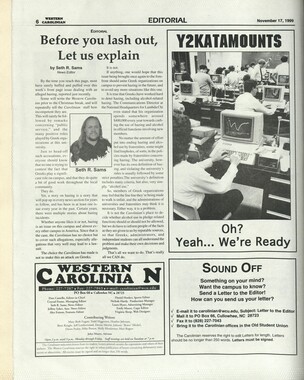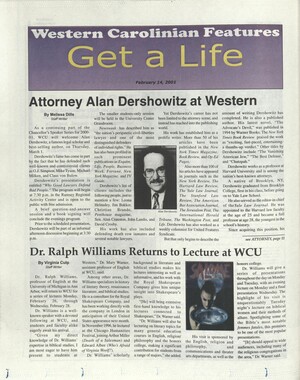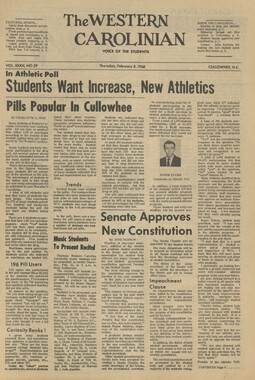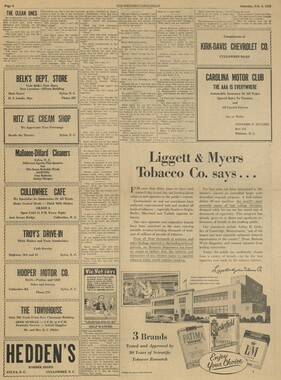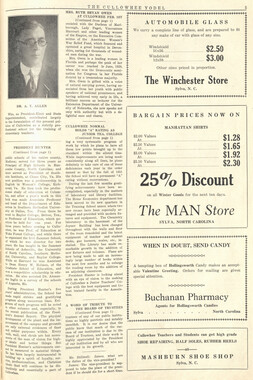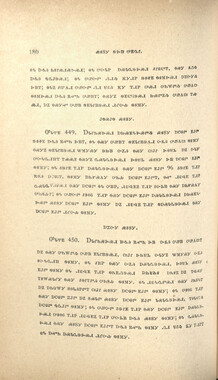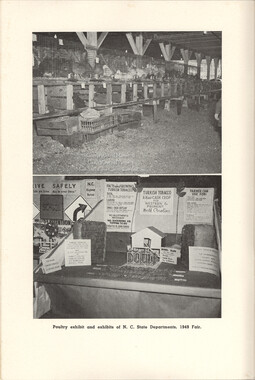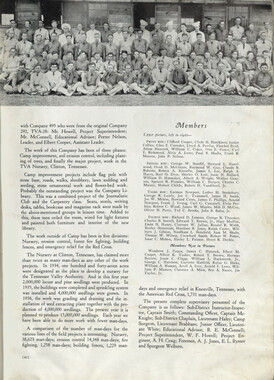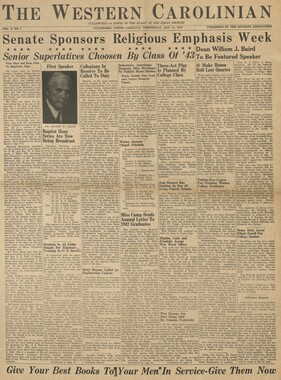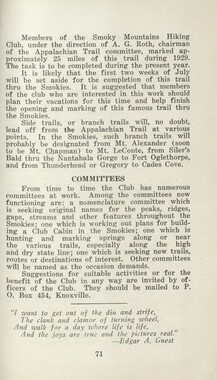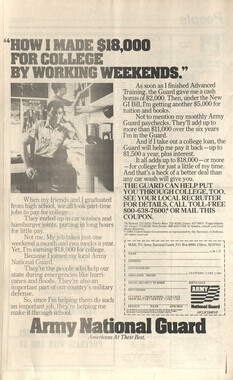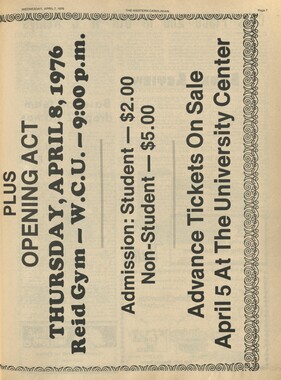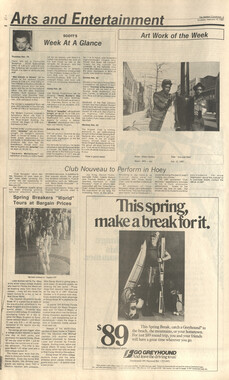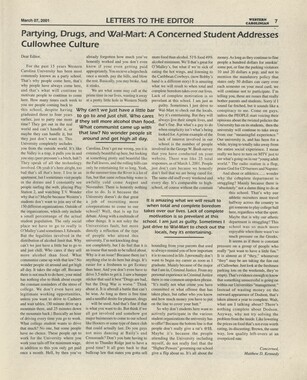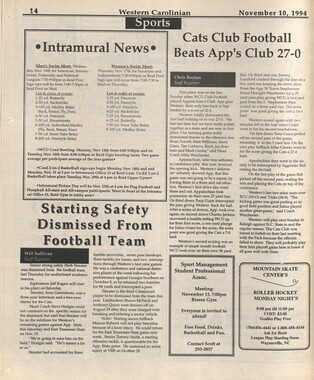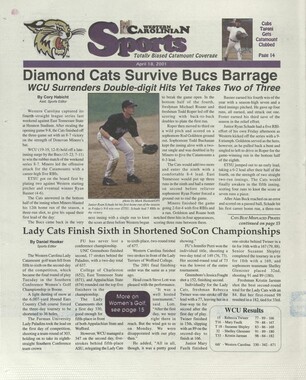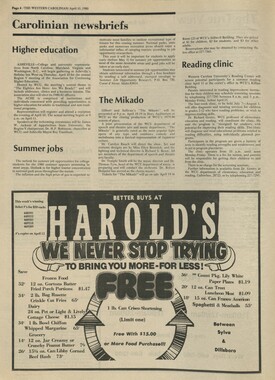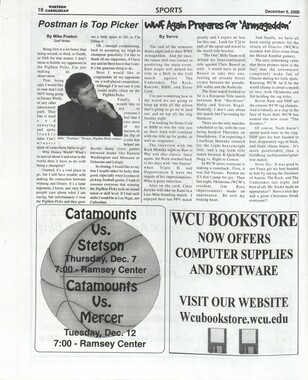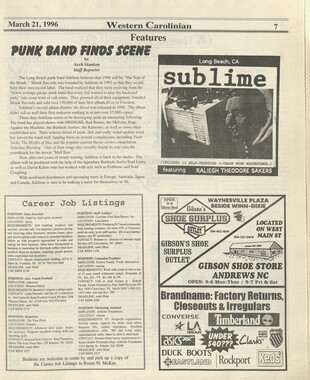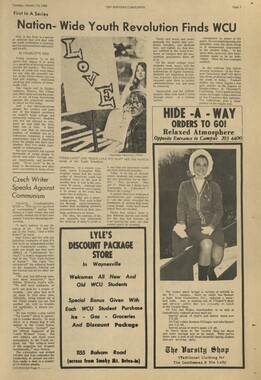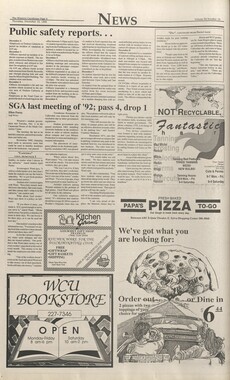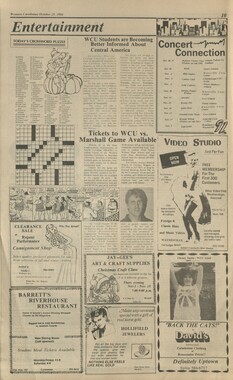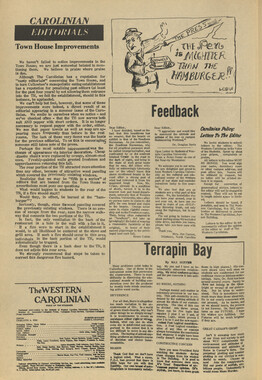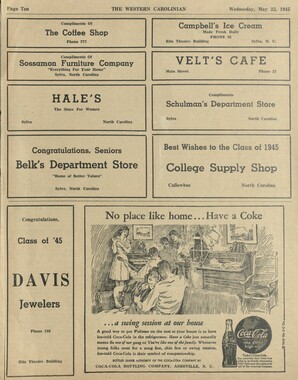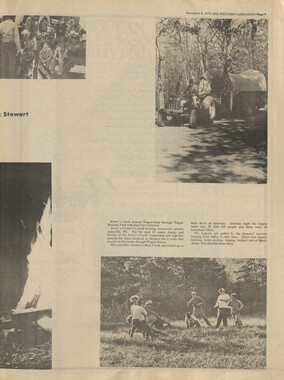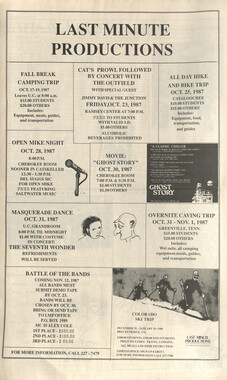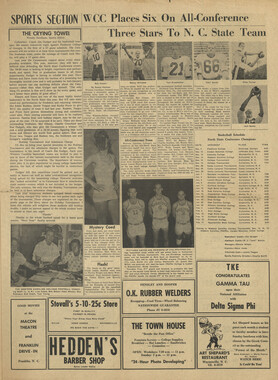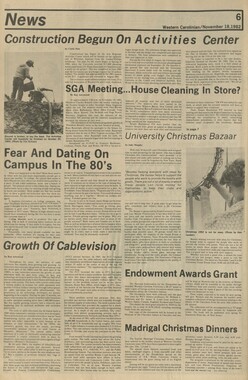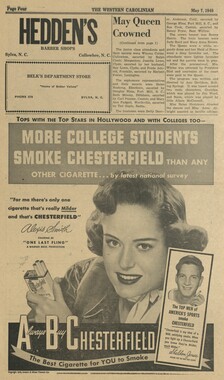Western Carolina University (20)
View all
- Canton Champion Fibre Company (2308)
- Cherokee Traditions (292)
- Civil War in Southern Appalachia (165)
- Craft Revival (1942)
- Great Smoky Mountains - A Park for America (2766)
- Highlights from Western Carolina University (430)
- Horace Kephart (941)
- Journeys Through Jackson (154)
- LGBTQIA+ Archive of Jackson County (85)
- Oral Histories of Western North Carolina (314)
- Picturing Appalachia (6772)
- Stories of Mountain Folk (413)
- Travel Western North Carolina (160)
- Western Carolina University Fine Art Museum Vitreograph Collection (129)
- Western Carolina University Herbarium (92)
- Western Carolina University: Making Memories (708)
- Western Carolina University Publications (2283)
- Western Carolina University Restricted Electronic Theses and Dissertations (146)
- Western North Carolina Regional Maps (71)
- World War II in Southern Appalachia (131)
University of North Carolina Asheville (6)
View all
- Western Carolina College (199)
- Western Carolina Teachers College (239)
- Western Carolina University (1792)
- Allanstand Cottage Industries (0)
- Appalachian National Park Association (0)
- Bennett, Kelly, 1890-1974 (0)
- Berry, Walter (0)
- Brasstown Carvers (0)
- Cain, Doreyl Ammons (0)
- Carver, George Washington, 1864?-1943 (0)
- Cathey, Joseph, 1803-1874 (0)
- Champion Fibre Company (0)
- Champion Paper and Fibre Company (0)
- Cherokee Indian Fair Association (0)
- Cherokee Language Program (0)
- Crittenden, Lorraine (0)
- Crowe, Amanda (0)
- Edmonston, Thomas Benton, 1842-1907 (0)
- Ensley, A. L. (Abraham Lincoln), 1865-1948 (0)
- Fromer, Irving Rhodes, 1913-1994 (0)
- George Butz (BFS 1907) (0)
- Goodrich, Frances Louisa (0)
- Grant, George Alexander, 1891-1964 (0)
- Heard, Marian Gladys (0)
- Kephart, Calvin, 1883-1969 (0)
- Kephart, Horace, 1862-1931 (0)
- Kephart, Laura, 1862-1954 (0)
- Laney, Gideon Thomas, 1889-1976 (0)
- Masa, George, 1881-1933 (0)
- McElhinney, William Julian, 1896-1953 (0)
- Niggli, Josephina, 1910-1983 (0)
- North Carolina Park Commission (0)
- Osborne, Kezia Stradley (0)
- Owens, Samuel Robert, 1918-1995 (0)
- Penland Weavers and Potters (0)
- Rhodes, Judy (0)
- Roberts, Vivienne (0)
- Roth, Albert, 1890-1974 (0)
- Schenck, Carl Alwin, 1868-1955 (0)
- Sherrill's Photography Studio (0)
- Smith, Edward Clark (0)
- Southern Highland Handicraft Guild (0)
- Southern Highlanders, Inc. (0)
- Stalcup, Jesse Bryson (0)
- Stearns, I. K. (0)
- Thompson, James Edward, 1880-1976 (0)
- United States. Indian Arts and Crafts Board (0)
- USFS (0)
- Vance, Zebulon Baird, 1830-1894 (0)
- Weaver, Zebulon, 1872-1948 (0)
- Western Carolina University. Mountain Heritage Center (0)
- Whitman, Walt, 1819-1892 (0)
- Wilburn, Hiram Coleman, 1880-1967 (0)
- Williams, Isadora (0)
- 1920s (57)
- 1930s (69)
- 1940s (114)
- 1950s (66)
- 1960s (314)
- 1970s (599)
- 1980s (406)
- 1990s (379)
- 2000s (195)
- 2010s (83)
- 1600s (0)
- 1700s (0)
- 1800s (0)
- 1810s (0)
- 1820s (0)
- 1830s (0)
- 1840s (0)
- 1850s (0)
- 1860s (0)
- 1870s (0)
- 1880s (0)
- 1890s (0)
- 1900s (0)
- 1910s (0)
- 2020s (0)
- Jackson County (N.C.) (2282)
- Appalachian Region, Southern (0)
- Asheville (N.C.) (0)
- Avery County (N.C.) (0)
- Blount County (Tenn.) (0)
- Buncombe County (N.C.) (0)
- Cherokee County (N.C.) (0)
- Clay County (N.C.) (0)
- Graham County (N.C.) (0)
- Great Smoky Mountains National Park (N.C. and Tenn.) (0)
- Haywood County (N.C.) (0)
- Henderson County (N.C.) (0)
- Knox County (Tenn.) (0)
- Knoxville (Tenn.) (0)
- Lake Santeetlah (N.C.) (0)
- Macon County (N.C.) (0)
- Madison County (N.C.) (0)
- McDowell County (N.C.) (0)
- Mitchell County (N.C.) (0)
- Polk County (N.C.) (0)
- Qualla Boundary (0)
- Rutherford County (N.C.) (0)
- Swain County (N.C.) (0)
- Transylvania County (N.C.) (0)
- Watauga County (N.C.) (0)
- Waynesville (N.C.) (0)
- Yancey County (N.C.) (0)
- Newsletters (510)
- Publications (documents) (1773)
- Aerial Photographs (0)
- Aerial Views (0)
- Albums (books) (0)
- Articles (0)
- Artifacts (object Genre) (0)
- Bibliographies (0)
- Biography (general Genre) (0)
- Cards (information Artifacts) (0)
- Clippings (information Artifacts) (0)
- Crafts (art Genres) (0)
- Depictions (visual Works) (0)
- Design Drawings (0)
- Drawings (visual Works) (0)
- Envelopes (0)
- Facsimiles (reproductions) (0)
- Fiction (general Genre) (0)
- Financial Records (0)
- Fliers (printed Matter) (0)
- Glass Plate Negatives (0)
- Guidebooks (0)
- Internegatives (0)
- Interviews (0)
- Land Surveys (0)
- Letters (correspondence) (0)
- Manuscripts (documents) (0)
- Maps (documents) (0)
- Memorandums (0)
- Minutes (administrative Records) (0)
- Negatives (photographs) (0)
- Newspapers (0)
- Occupation Currency (0)
- Paintings (visual Works) (0)
- Pen And Ink Drawings (0)
- Periodicals (0)
- Personal Narratives (0)
- Photographs (0)
- Plans (maps) (0)
- Poetry (0)
- Portraits (0)
- Postcards (0)
- Programs (documents) (0)
- Questionnaires (0)
- Scrapbooks (0)
- Sheet Music (0)
- Slides (photographs) (0)
- Songs (musical Compositions) (0)
- Sound Recordings (0)
- Specimens (0)
- Speeches (documents) (0)
- Text Messages (0)
- Tintypes (photographs) (0)
- Transcripts (0)
- Video Recordings (physical Artifacts) (0)
- Vitreographs (0)
- The Reporter, Western Carolina University (510)
- WCU Students Newspapers Collection (1744)
- A.L. Ensley Collection (0)
- Appalachian Industrial School Records (0)
- Appalachian National Park Association Records (0)
- Axley-Meroney Collection (0)
- Bayard Wootten Photograph Collection (0)
- Bethel Rural Community Organization Collection (0)
- Blumer Collection (0)
- C.W. Slagle Collection (0)
- Canton Area Historical Museum (0)
- Carlos C. Campbell Collection (0)
- Cataloochee History Project (0)
- Cherokee Studies Collection (0)
- Daisy Dame Photograph Album (0)
- Daniel Boone VI Collection (0)
- Doris Ulmann Photograph Collection (0)
- Elizabeth H. Lasley Collection (0)
- Elizabeth Woolworth Szold Fleharty Collection (0)
- Frank Fry Collection (0)
- George Masa Collection (0)
- Gideon Laney Collection (0)
- Hazel Scarborough Collection (0)
- Hiram C. Wilburn Papers (0)
- Historic Photographs Collection (0)
- Horace Kephart Collection (0)
- Humbard Collection (0)
- Hunter and Weaver Families Collection (0)
- I. D. Blumenthal Collection (0)
- Isadora Williams Collection (0)
- Jesse Bryson Stalcup Collection (0)
- Jim Thompson Collection (0)
- John B. Battle Collection (0)
- John C. Campbell Folk School Records (0)
- John Parris Collection (0)
- Judaculla Rock project (0)
- Kelly Bennett Collection (0)
- Love Family Papers (0)
- Major Wiley Parris Civil War Letters (0)
- Map Collection (0)
- McFee-Misemer Civil War Letters (0)
- Mountain Heritage Center Collection (0)
- Norburn - Robertson - Thomson Families Collection (0)
- Pauline Hood Collection (0)
- Pre-Guild Collection (0)
- Qualla Arts and Crafts Mutual Collection (0)
- R.A. Romanes Collection (0)
- Rosser H. Taylor Collection (0)
- Samuel Robert Owens Collection (0)
- Sara Madison Collection (0)
- Sherrill Studio Photo Collection (0)
- Smoky Mountains Hiking Club Collection (0)
- Stories of Mountain Folk - Radio Programs (0)
- Venoy and Elizabeth Reed Collection (0)
- WCU Gender and Sexuality Oral History Project (0)
- WCU Mountain Heritage Center Oral Histories (0)
- WCU Oral History Collection - Mountain People, Mountain Lives (0)
- Western North Carolina Tomorrow Black Oral History Project (0)
- William Williams Stringfield Collection (0)
- Zebulon Weaver Collection (0)
- College student newspapers and periodicals (1769)
- African Americans (0)
- Appalachian Trail (0)
- Artisans (0)
- Cherokee art (0)
- Cherokee artists -- North Carolina (0)
- Cherokee language (0)
- Cherokee pottery (0)
- Cherokee women (0)
- Church buildings (0)
- Civilian Conservation Corps (U.S.) (0)
- Dams (0)
- Dance (0)
- Education (0)
- Floods (0)
- Folk music (0)
- Forced removal, 1813-1903 (0)
- Forest conservation (0)
- Forests and forestry (0)
- Gender nonconformity (0)
- Great Smoky Mountains National Park (N.C. and Tenn.) (0)
- Hunting (0)
- Landscape photography (0)
- Logging (0)
- Maps (0)
- Mines and mineral resources (0)
- North Carolina -- Maps (0)
- Paper industry (0)
- Postcards (0)
- Pottery (0)
- Railroad trains (0)
- Rural electrification -- North Carolina, Western (0)
- School integration -- Southern States (0)
- Segregation -- North Carolina, Western (0)
- Slavery (0)
- Sports (0)
- Storytelling (0)
- Waterfalls -- Great Smoky Mountains (N.C. and Tenn.) (0)
- Weaving -- Appalachian Region, Southern (0)
- Wood-carving -- Appalachian Region, Southern (0)
- World War, 1939-1945 (0)
- Text (2283)
- MovingImage (0)
- Sound (0)
- StillImage (0)
Western Carolinian Volume 48 Number 06
Item
Item’s are ‘child’ level descriptions to ‘parent’ objects, (e.g. one page of a whole book).
-
-
10 Western Carolinian/September 8, 1983 Roberts Deals With More Than Just Farming Now Wanda Crawford Staff Writer Two months ago, J ohnny Roberts was a part-time farmer, part-time cotton broker in his small family business in Chester, S S.C. Now, as Captain Roberts, he is the Enrollment and Retention Officer of WCU's ROTC Detachment, replacing Major Ralph Jones who recently was transferred to the American Army base at Zweibrucken, Germany. When Cpt. Roberts got his orders back in January, his first reaction was to try and talk his way out of them. After all, he has a wife and two teenagers to think of, not to mention his friends, his business, and his position in the community. As a citizen-soldier in the National Guard, he never expected to be called upon for anything more than the obligatory weekend training sessions and his annual two-week splurges of drill. He knew, of course,that it issomethingofa personal accomplishment for a Guardsman to be selected for active duty, and that such a selection would by nature carry some pretty decent benefits along with the increased commitment and responsibility. The average National guardsman is a part-time soldier and full-time civilian, unless duty beckons in the form of national emergency, civil disturbance, or -- very rarely -- a call to active duty. Normally, Guardsmen are under the jurisdiction of their state of residence, for the National Guard is technically a state agency. But once a Guardsman is ordered into active status, he may be stationed anywhere in the country. Ergo, after Johnny Roberts accepted his contract, he loaded up some personal effects and drove up to Cullowhee, leaving his family behind in Chester, where he commutes home on weekends. As a National Guardsman, a reservist, Cpt. Roberts is part of a new development in ROTC enrollment and training -Army Reserve, National Guard, and active duty in the regular Army are now the choices given ROTC graduates. Because a hefty 60% of graduates choose service in the two reserve components, at least one reservist is now being assigned to each detachment. Cpt. Roberts is the first such reserve officer to come to WCU, and it is his duty to make students more aware of the opportunities available to them as reservists. As an assistant professor, Cpt. Roberts is an instructor of first-year military science (MS 1). But his primary responsibility is to pay recruitment visits to high schools and to advise students here at WCU. Since becoming active, Cpt. Roberts has been through several training sessions, including summer ROTC camp at Fort Bragg, where he served on the land navigation committee. Then he spent a week in Hampton, Virginia, at an Enrollment Officers' course. Most recently, he spent anotherweek at Braggand is now settled here in Cullowhee. The experience of being a faculty member in ROTC is in itself unique. Teaching personnel are more aptly called trainers than professors. To be assigned to ROTC, the teaching staff must be branch qualified by the Army, in addition to meeting WCU academic standards. It is a prestigious and coveted assignment in a officer's career. Serving on ROTC staff is an option and not a strict obligation, lt is offered along with two or three alternatives, but once an individual chooses ROTC, his choices have ended. He goes where he is sent, and even in the academic community into which he is transplanted, he is still military personnel performing military functions. Cpt. Roberts, whose area of expertise is Armor (tanks and such), is aware of the MS instructor's responsibility not only to set forth facts but to program students to become leaders. Said Roberts, "We want to develop professional skills arid leadership. The officer will have to know how to handle an enormous range of responsibilities, from handling personal to leading combat troops. He will have to handle everything, eventually." Most ROTC instructors are accustomed to dealing only with militarily motivated people. This presents the necessity of an adjustment in attitudes. According to Roberts, "You can't just walk in and tell them 'Fall in, kids! We're going to do this today. '"Until they are in their junior year and become con-tracted, ROTC students are civilians and are no more compelled to obey orders than are any other civilians. As a National Guards-man cum MS instructor, Cpt. Roberts has an edge. He is more used to dealing with civilians than are other personnel because that is what he is. The contract under which he works is a temporary one, as opposed to a contract of the regular, permanent sort, and obligates him to three years of active duty, after which he returns to reserve status. Cpt. Gary Bryant, at 26 the youngest member of the ROTC faculty, has an outlook, and an obligation, of somewhat contrasting ilk. To him, the academic community is a "totally different environment." Son ofa military "lifer," he plans an Army career for himself. Unlike Cpt. Roberts, Bryant is in the active component of the Army. Having commanded at the age of 24, he finds that his ROTC work, though "definitely enjoyable," is "nowhere near the same as being an officer in a troop unit." College kids ask impertinent questions like "Why," and if they are freshmen and sophomores, don't even have to obey orders. Only contracted juniors and seniors are actually under military jurisdiction, but by that time have become fairly well committed to the program of indoctrination that will make them tomorrow's platoon leaders. Both Roberts and Bryant feel that ROTC does more than merely graduate students knowledgeable of military ways and means. Part of the gravity peculiar to their LAMBDA CHI ALPHA and SMOKEY MT. DISTRIBUTORS Present THE 14TH ANNUAL LAMBDA CHI ALPHA RAFT RACE Sat. Sept. 10,1983 w- v.- \ Registration 8:30-10:30 Fee $4 for Mens, Womens, or Co-ed Division Party at new Lambda Chi Alpha property 100 yds from Theta Xi house. Entertainment by Curious George Details call Mike Gillespie at 293-3338 or contact any Lambda Chi Alpha position comes from knowing that the corn-missioned graduate will be given more responsibility than any college graduate in any other area. The new officer will be entrusted with the work, the job effectiveness, and the very lives of varying numbers of other human beings. Because of this, each student, before becoming commissioned, goes through an exhaustive battery of physical and intellectual tests to prove her/ himself suitable for command. Military science instructors sometimes run into former students, commissioned and at work in some capacity. According to Cpt. Bryant, "mistakes can come back to haunt you" in the form of officers incompetent and unfit for duty. A quartermaster. Airborne qualified, Cpt. Bryant's previous four years of duty were with the 1st Cavalry Division at Fort Hood, Texas. At WCU he is an MS III instructor, training the students who will go to a six-week basic training camp in the summer aftertheirjunior year. During the Vietnam years, ROTC was a grimmer and riskier duty than it is now. But both Roberts and Bryant feel that people are comfortable once again with the idea of military service, that this country has come full-cycle from flag-waving to flag-burning and back again. Roberts, now 35, graduated from college and served two years of active duty as the Vietnam conflict was drawing to a close. He has painful memories of the way, even when he was out of uniform, his military haircut not only set him apart from other people his age but actually provoked hostility from them. Cpt. Bryant's ex-perience is radically different. Nine years younger than Cpt. Roberts, his personal memories are of crowds applauding the national anthem and of the rising fervor of patriotism. A poor civilian job market has flooded recruiters' offices with such hordes of applicants that the Army cannot possibly enlist all, or even most, of them. Therefore, the Army now has leverage for being more selective than ever, and one of the first areas to be upgraded was the edu-cational requirement. Gone are the days when high school dropouts could enlist with impunity. Now a high school diploma is mandatory for new enlistees, and two years of college is being pushed for non-commissioned officers. Commissioned officers must have bachelor's degrees, and for promotion to the higher ranks a master's degree is helpful, if not actually necessary. Cpt. Roberts has a B.S. in biology from Winthrop, a B.S. in chemistry from Clemson, and an M.A. in teaching from the Citadel. Cpt. Bryant earned his BSBA from North Georgia College. Though a non-ROTC college graduate can be commissioned as an officer, many students choose ROTC because of its advantages in orienting the student to military ways. For more information on what WCU's ROTC program has to offer, call Cpt. Roberts at 7438. Western Carolinian staff meetings 7 p.m. Thursdays cont. from page 1 In the exhibit, the same story is told through a 60- foot canvas mural, full-size authentic dwellings like those used by the early Irish tenant farmer and the.Appalachian pioneer, historic maps and photographs, and household artifacts which came from Ireland and are on loan in America for the first time. In addition, the story is depicted in a poignant multi- image slide tape show, in which Irish voices and songs speak of the emigrants' love of Ireland, their oppression and their move across the Atlantic. . . .the truth "is revealed and discussed and analyzed accurately and calmly and dispassionately" Financed largely by a grant from the National Endowment for the Humanities, the exhibit is very timely, said Dr. Alan Burges, chairman of the Scotch- Irish Trust of Ulster. Speaking at the opening, Burges said, "This is a crucial period. People are still living who have used these tools and instruments. The period is almost gone, and if we don't tap it, it will be gone forever." Dr. James E. Dooley, WCU vice chancellor for development and special services, said the new exhibit, more than any other at the center, "provides a window on the past and an explanation of influence which we feel even today." "We have been aware for a long time that the Scotch- Irish tradition looms large in the culture of our region," he said. "But even though many of us, whether or not we know it, have Scotch-Irish names, we haven't always known just what we mean when we say our families are Scotch-Irish." Through the exhibit, which was designed by the center curator, Sam Gray, "we now know that there are continuities of tradition that reach all the vvay back across the centuries and across the ocean to the old country," Dooley said. Admission to the Scotch-Irish exhibit is free during gallery hours from 9 a.m. until 5 p.m. on weekdays and 2 until 5 p.m. on Sundays. The center is located on the first floor of the H.F. Robinson Administration Building. Your Student Entertainment Connection Presents In Concert Thurs. Sept. 15 8:00 pm Hoey Auditorium Tickets: $3.00 for WCU Students $5.00 for all others $5.00 at the door Available at Hinds UC DJ's in Cullowhee WWIT in Canton
Object
Object’s are ‘parent’ level descriptions to ‘children’ items, (e.g. a book with pages).
-
The Western Carolinian is Western Carolina University's student-run newspaper. The paper was published as the Cullowhee Yodel from 1924 to 1931 before changing its name to The Western Carolinian in 1933.
-
